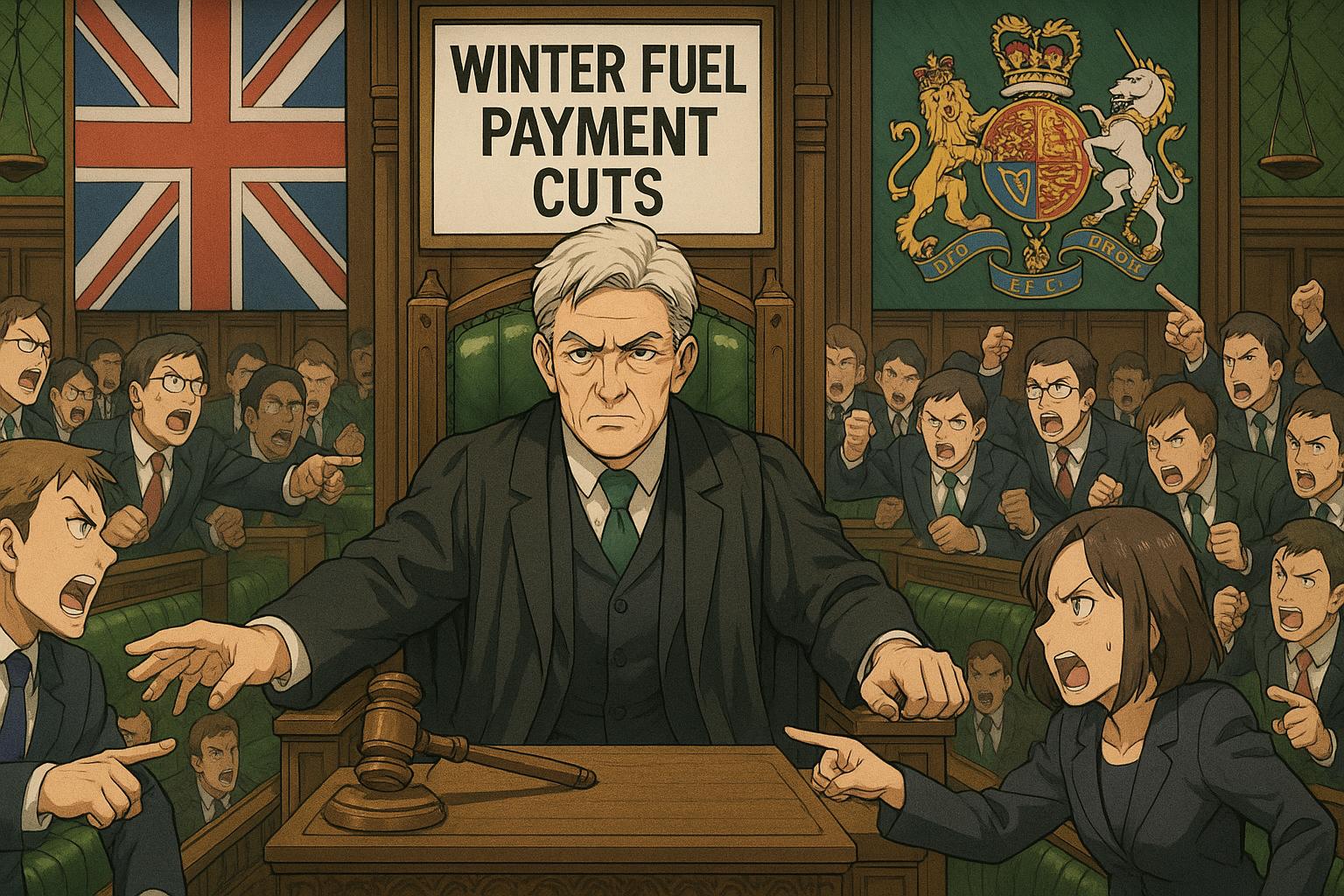During Prime Minister’s Questions on 21 May, Sir Lindsey Hoyle, Speaker of the House of Commons, found himself in the unusual position of having to manage unruly MPs while the Labour Party grappled with a controversial policy reversal concerning winter fuel payments. As tensions flared over Labour’s decision to cut these payments, Sir Keir Starmer announced a significant U-turn that aimed to address the backlash resulting from previous funding cuts, which had drawn widespread concern from both the public and political pundits.
Sir Lindsay's remarks delivered during the session underscored the chaotic atmosphere within the Commons. Addressing disobedient members, he urged them to maintain order or leave the chamber. “The boys at the back, I’ve got my eye on you,” he stated, calling for decorum amid the uproar. His pointed question, “Which one wants to leave first?” was directed at an especially vocal group, marking a moment of levity against a backdrop of serious political discourse.
The backdrop to this altercation stems from Labour’s prior decision to end winter fuel payments for around 10 million pensioners, a cut officials estimated would save £1.5 billion. The policy limited eligibility to only those on means-tested pension credits, a move that had been designed to tackle the financial deficits spanning from the previous Conservative administration. However, the ramifications of this decision proved politically damaging, especially as Labour faced poor performance in recent local elections, attributed largely to voter dissatisfaction over cuts to elderly support and other welfare measures.
Responding to increasing pressure, particularly from within his own party, Keir Starmer signalled that the government would expand winter fuel payment eligibility as rising inflation intensified concerns about the cost of living. This significant policy shift was not merely reactive; it reflected a broader strategic adjustment from Labour aimed at regaining voter trust. Starmer’s commitment to revert the cuts indicated a recognition that public support hinges significantly on social safety nets, particularly as many pensioners find themselves financially strained in the current economic climate.
Chancellor Rachel Reeves also faced scrutiny as Labour's apparent shift back towards welfare support raised questions about the party’s overall economic strategy. Critics have pointed to this policy reversal as an instance of indecision, fuelling doubts about their ability to navigate complex fiscal challenges. The reversal may be seen as a vital step toward restoring confidence, but it also highlights the razor-thin margins that define political viability in a time of economic turbulence.
As Sir Lindsay Hoyle aptly pointed out to members, the discourse within the Commons is not just about policy announcements; it reflects the very real implications for millions of citizens. As Labour seeks to mend the rift caused by prior funding cuts, the Speaker’s call for order serves as a reminder that governance, particularly in moments of crisis and contention, requires not only steadfastness but also unity amongst leaders.
This dynamic unfolding in British politics signals a pivotal moment for the Labour government, as they navigate the often treacherous waters of public opinion and economic necessity. The coming weeks will be critical in determining whether their renewed commitment to support measures like winter fuel payments will restore voter faith and stabilise the party's position ahead of future electoral challenges.
Reference Map
- Paragraph 1: Sources (1), (2)
- Paragraph 2: Sources (1), (2)
- Paragraph 3: Sources (3), (5), (6)
- Paragraph 4: Sources (4), (6)
- Paragraph 5: Sources (3), (7)
- Paragraph 6: Sources (4), (5)
- Paragraph 7: Sources (3), (6)
Source: Noah Wire Services
